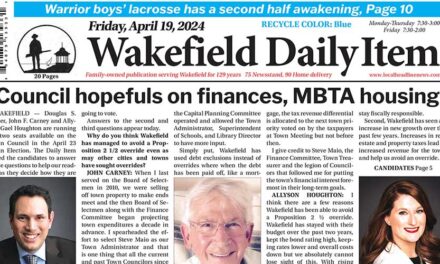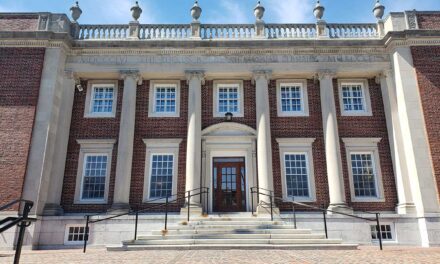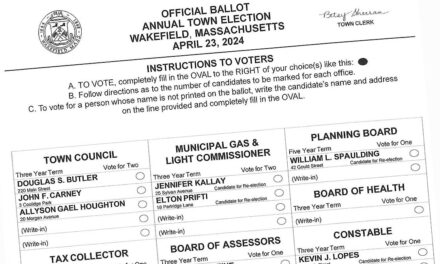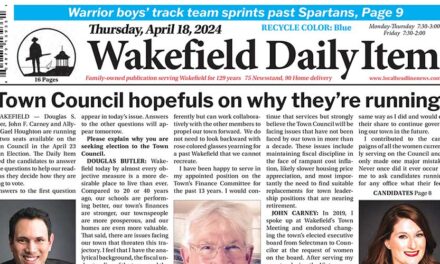Published in the July 28, 2015 edition
By GAIL LOWE
WAKEFIELD — The world won’t be coming to Boston in nine years and a lot of people are happy about it.
Yesterday, the U.S. Olympic Committee Chief Executive Officer Scott Blackmun and Boston 2024 Chairman Steve Pagliuca issued a joint statement that officially ended the city’s Olympic bid.
The withdrawal came hours after Boston Mayor Marty Walsh said he could not commit to signing the host city contract as presented because it would put the city and taxpayers at risk of paying for potential cost overruns.
Wakefield’s delegation on Beacon Hill was not disappointed with the news.
Jason Lewis (D-Winchester), Paul Brodeur (D-Melrose) and Donald Wong (R-Saugus) said that Boston was not prepared for the fiscal risk, and deservedly so. Wong also said that Boston lacked the infrastructure needed to be host.
Lewis expanded on Wong’s comment, saying that Boston would need a stadium, aquatic center and velodrome to accommodate a potential 60,000 people, which would require the spending of millions of dollars for structures that would have no purpose at the close of the games.
“We would have to build these places from scratch,” said Lewis.
Brodeur questioned the significant impacts the Olympics would have had on the state, particularly the “broader impacts if we (state lawmakers and, ultimately, Gov. Charlie Baker) had to write a check for bad management.”
Brodeur said he was neither for nor against Boston hosting the summer games when the pitch was first introduced but explained this morning that Mayor Walsh “did the right thing pulling the plug on this.”
Brodeur continued, “I don’t think we should be using public funds on anything to do with the Olympics.”
According to Wong, Boston was not prepared to host the Olympics.
“It would cost too much money,” he said. “Ninety percent of hotels are already filled in the summer months. I don’t know where we would have fit all the people who would come to the Olympics.”
Wong also cited the increase in traffic and the impact it would have on commuters. “There was a rumor that one highway lane would be closed to local traffic to accommodate the increase in visitor traffic,” said Wong.
Hosting the Olympics would also impact tourism, he said.
“This would be a hardship for the people in Massachusetts not only for commuters,” Wong commented. “How many tourists would stay away from Boston because of the chaos?”
Lewis agreed. “Overall, I think the decision not to host the Olympics is the best one,” he said.
“The intentions were good but it was underestimated how complicated it would be and how many risks were involved. Very understandably, people of Boston and elected officials were not prepared to undertake the risks. We would have had to build new facilities— including a stadium — from scratch. We would not need these venues after the Olympics ended,” Lewis said.
“Over the last few weeks, it became more and more clear to me that the opportunity to host carried a lot of risk. Taxpayers would have been on the hook for any overruns.”
Acknowledging the overspending at past Olympics such as those in Beijing and Sochi, officials for the Boston 2024 Partnership, which included Dan O’Connell, chief executive of the Massachusetts Competitive Partnership; Erin Murphy Rafferty, a former Greater Boston Chamber of Commerce vice president and Emiley Lockhart as general counsel, planned for a cost-effective event that would have made use of private funds, existing facilities and temporary venues and transportation projects that had already received approval. By last June, the group had privately raised $11 million and plans were announced for another $50 million in private funds to be raised for the global bid campaign. The event would have cost a total of $4.5 billion and the state would have been required to spend $6 billion on increased transportation and infrastructure improvements. Some of the money would have come from ticket and merchandise sales and media advertising.
Existing facilities such as those at Greater Boston universities, Gillette Stadium, TD Garden and the Charles River were being eyed as venues.
Those in favor of hosting the Olympics in Boston encouraged residents to view the bid as a conversation starter about the area’s future.
People in opposition argued against the bid, citing overspending in previous Olympic years and lack of economic benefits for host cities and their tourism industries.
In a March 2015 poll, it was indicated that 52 percent of Boston area residents were opposed to hosting the games.




